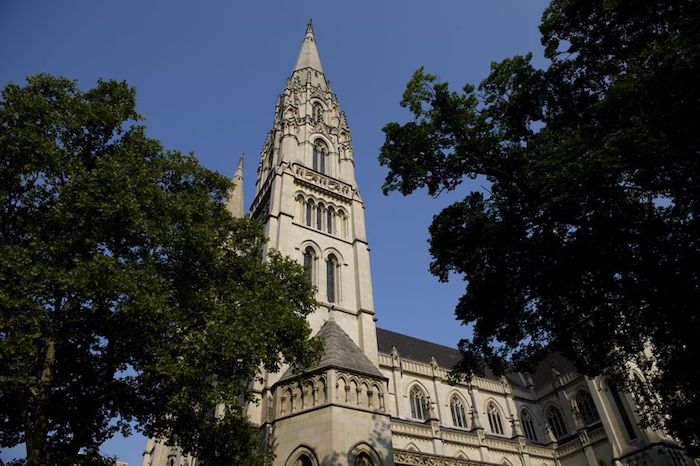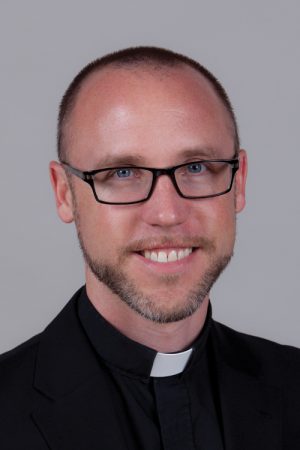Structural changes alone won’t fix the church. Our culture must change as well.

As a Jesuit, a Roman Catholic priest — as somebody who lives and breathes the church — I should have understood already how broken the institution of the church can be. After all, the scandal of child sex abuse and its cover-up by the church hierarchy broke in Boston in 2002. Then it happened again in Minnesota in 2012. That list could go on. I read about those scandals years ago with both anger and sadness. But in reading the recent Pennsylvania reports detailing yet another cover-up of clergy sexual abuse, I found shock giving way to shame.
I am ashamed at the crimes recorded in the Pennsylvania grand jury report and ashamed by the apparently well-known abuses of power by former Cardinal McCarrick. I am ashamed not because there is anything new in these reports, but because it means that in yet another place, the hierarchy of the church has chosen to protect the institution over the vulnerable. And I am ashamed because, though I have not committed these acts myself, I am by my own choice a part of this system. It is because others who have this ministry have caused such pain that I feel compelled to say how sorry I am.
But even saying that feels uncomfortably like a power grab, a use of the very authority of the priesthood — the expectation that people will listen as I narrate the experience of faith — to make an inadequate apology for the way that same authority has been so grievously misused. But it will take a few more words to explain why I became a Catholic, why I am a priest, and why all of this matters.
Why I became a priest

I became a Catholic in April 2001 during my junior year of college. I was 20 years old, and deeply convinced in the way only a 20-year-old can be that I was becoming part of something much bigger, much holier, much truer than I could be alone.
Extremist that I am, 18 months later I became a Jesuit, and 11 years after that a priest. What I wanted — and what I have found — was a way to give my whole life away in service. I wanted to think toward such a God, help women and men experience such a God, and serve such a God among the poor. I wanted to speak about what such a life was like and, in speaking about it, make it a little more imaginable for others. Being a priest has been the greatest gift of my life.
Which explains something of why it is so heart-wrenching, in light of these continuing scandals, to feel this greatest of gifts become a source of pain.
It’s not that there haven’t been efforts to fix this in the past. In 2002, the church implemented the Dallas Charter, which established comprehensive procedures for the protection of minors. And it seems to be working — nearly all the abuse cases described in the Pennsylvania report are from decades ago.
Still, for many years, even as vocations to the priesthood and religious life have declined and laypeople have taken on more and more leadership positions, there has been an expectation that it is the role of the clergy to speak and that of the laity to listen
Which is why I feel that in the midst of such a scandal, more words from yet another priest verge on the scandalous. Instead, what we priests need to do is to renounce the expectation to be listened to in favor of listening to those we serve
Trying to do that led me to ask a handful of lay leaders across the country not just what they thought of these scandals but how it was affecting their ministry and what they hoped for the church in its midst. Each of them labor full time in the church, ministering as teachers, retreat leaders, and spiritual directors. I preserved their anonymity so they would feel free to speak.
“I actually don’t feel that the bishops betrayed my trust, because they’ve never had it.”
“I am angry,” said one campus minister at an all-girls high school in the Midwest. “I’m now at the point where I’m going to lean into the church one more time, and this is either going to get better or I’m leaving. I want this to get better,” he told me, “but it’s not going to unless we demand a change in the way the church functions. I think we have to use the anger we feel for good because anger without action is selfish. We, the laity of the church, are also responsible for maintaining the status quo — now that we know about these abuses, we must act.”
“I actually don’t feel that the bishops betrayed my trust,” said a theologian at a Catholic university in the West, “because they’ve never had it. But the church is not the bishops. Most of my students don’t feel betrayed for the same reason. They never trusted the institution in the first place.”
A director of formation for a large, suburban parish told me that it’s “only after working within the church for more than a decade” that she’s actually felt like she has some influence on the governance of her parish. “What this scandal has really shown,” she said, is “how deep the chasm between the clergy and the laity really is. It cannot be that the only time we have intimate conversations with priests is behind the wall of the confessional.”
For her, this means involving women, who have for so long done so much of the church’s ministry. As she put it, “women are the ones leading the relational ministries of the church. We have to be included in the leadership of our dioceses, but right now it feels like we are expected to stand on the sidelines and be cheerleaders. Women need a seat at the table.”
Another minister, a liturgist and chaplain at a large Catholic university, told me: “I want us to talk more openly about sexuality in ministry. We have to actually talk about it because the reality is that the sexual identities of the church ministers have been stifled.” When I asked him what was preventing such conversations from happening, he replied, “I believe that the hierarchy is afraid. I’m afraid of having these substantive conversations, too, but fear undermines even the possibility of intimacy. And all of us who minister in the church need mutuality — it is too lonely otherwise.”
Structural reforms alone won’t fix the church
It is practices that sustain communities: throwing a baseball, sitting down for dinner, bowing before the Eucharist. But it is people that sustain practices. Without people who freely give their lives to sustain the practices that make up the Catholic community, there is no church. This is part of what I heard in my conversations with these lay ministers.
In order for the clergy to continue our work, in order for them to be credible to a world that has been so well-trained in reasons not to believe anything said by anyone in ministry, both ministry itself and the culture of the church need to change. For too long, clergy have claimed, and the church has granted, authority simply for being ordained. We must sever the connection — the clericalism — that mistakes a ministry of service for a grant of privilege.
Structural reforms are necessary but not sufficient to begin making this change. At a minimum, as Cardinal DiNardo, the current president of the United States Conference of Catholic Bishops, recently said, the church must welcome lay oversight at the parish, diocese, and national levels. We must implement transparent protocols for the supervision not only of priests but of bishops and cardinals. Lay leaders, especially women, must be included in the formation of Catholic clergy. But for any of this to be more than empty procedures, the church will have to unlearn one culture and relearn another. This will mean changing our identities. And it will cost.
For the clergy, the cost will be learning not to expect automatic, exclusive authority. This might mean that becoming a priest no longer carries with it the expectation of leadership of a parish or a high school or a university. For bishops, this must mean real partnership with laypeople in the governance of their dioceses.
For the whole church, this means unlearning the instinct to try to repay people for the gift of their lives by giving them titles, powers, offices — even by automatically calling them holy. It means constantly remembering that it is service that grounds authority and teaches us how to use power.
In such a church, there would be less need to have a priest write an article in which the voices of the laity — in their anger, their attention to the poor, their tears, and their courage to confront what causes fear — are raised up, because ministers would be listened to because of their authentic service rather than their titles.
Ministry in such a church — one much bigger, much holier, much truer than any of us can ever be alone — can still be a gift, not just for priests but for all.
Complete Article ↪HERE↩!
